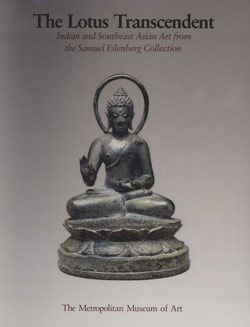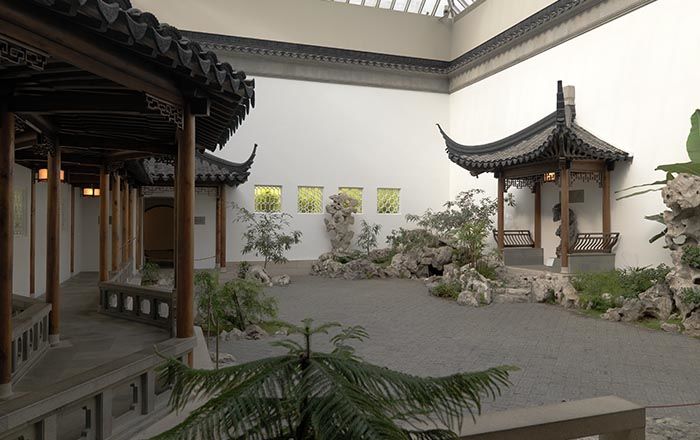Avalokiteshvara, the Bodhisattva of Infinite Compassion
The early history of Sri Lanka is intimately linked to that of India. In particular, Buddhism, which first reached Sri Lanka in the third century B.C., profoundly shaped the art and culture of this island nation.
This small bronze, representing Avalokiteshvara, the Bodhisattva of Infinite Compassion, shares the physical proportions, sensuous plasticity, and exquisite modeling that characterize the sculpture of southern India in the seventh century. The deity's narrow face and elongated nose, however, attest to the work's Sinhalese origins.
Avalokiteshvara is seated in a posture of royal ease on a square throne with right leg raised and foot placed on top of the pedestal. The left leg is pendant, the foot resting on a small projecting element. Identified by the small—in this case, abraded—figure of a Buddha in his headdress, Avalokiteshvara is dressed in a long dhoti and wears the sacred thread across his chest.
Due to rights restrictions, this image cannot be enlarged, viewed at full screen, or downloaded.


